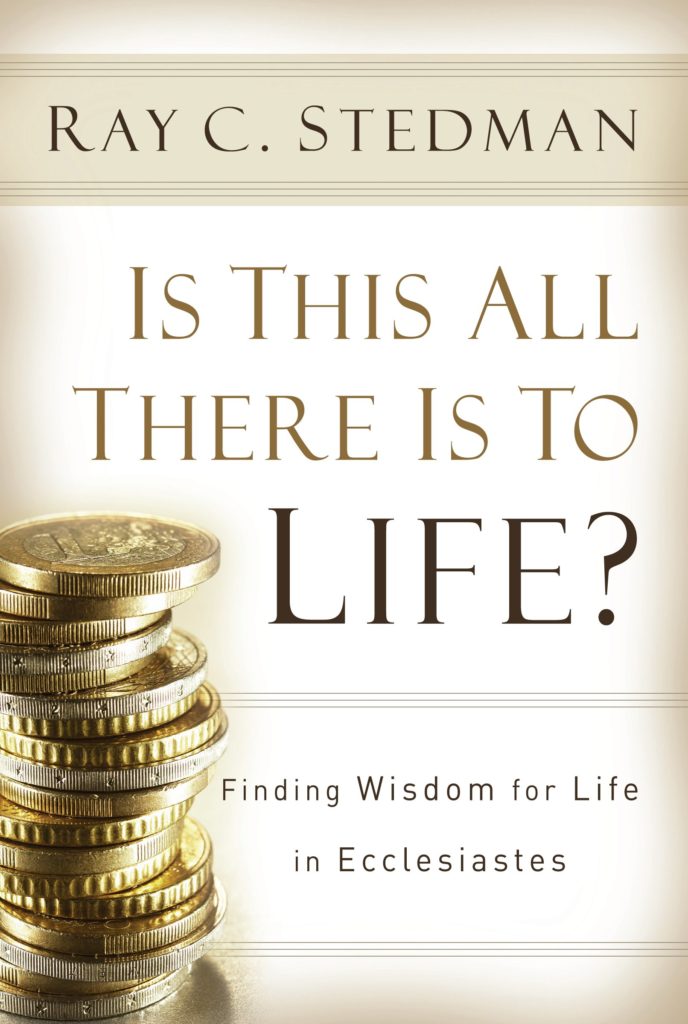God “puts eternity in the heart of man,” says the preacher (Ec 3:11). The idea is not only that we have an intellectual concept or a notion of eternity, but that we have a profound sense that our present life in the world is not all that exists; what’s one?forever this makes this life more meaningful than many dare to imagine and reveals the vanity of living only for the things of the present time.
This awareness of eternity belongs to what John Calvin calls sensus divinitatis, and inevitably guides even the unregenerated into our endless future. This is evident in humanity’s fascination with life after death and in the way we talk about the one who “left. “It is also evident in the way religious men, including ours, have always been. What happens to us after death is a fundamental doctrine of almost all religions and is generally considered decisive about how we should live this life in preparation for the next.
- That eternity is in our hearts is one of the reasons why people who are engaged in the pursuit of temporal pleasure usually find life so empty.
- As CSLewis points out.
- Our aspirations go further and go further and aspire to much higher things than anything within our reach can satisfy.
- Living the present requires us to actively suppress this inner feeling of eternity and to deny our deepest desires (and aspirations) to be paced with much more superficial feelings.
Interestingly, did the ancient epicureans identify the fear of death as the greatest obstacle to a life dedicated to temporal pleasures?It is further proof of the universal meaning of eternity (and the expectation of judgment). To free themselves from the fear of death, they invented an atomic anthropology in which we are but sensitive material beings, their only hope, in other words, was that death was really our absolute end, this is more or less where many Brazilians are today, and it is one of the driving forces behind the popular acceptance of metaphysical naturalism in the secular West. If death is not our absolute end, then we must face the vanity of all life that is not lived for eternity.
No matter how strongly someone denies life after death, because there always persists the feeling that there is more than this life present, so stubbornly that Emanuel Kant, who denied that someone might know such a thing, admitted that at least one must believe. in a life after death so that we can live properly in this life.
Kant was partly right: the reason alone can’t?To penetrate eternity to “discover the works that God has done from beginning to end” (Ec 3:11). And yet the meaning of eternity is printed in our hearts with the same firmness as the conscience of God and the work of the law (Romans 1. 19-22; 2. 14-16). Our consciences, desires, aspirations and fears betray us.
Jesus did not live in a post-Light culture of secular agnostics, like many of us, but even the Judaism of the second temple had its Sadducees denying the resurrection. However, his denials did not in any way paralyze Jesus; He simply emphasized how the thought of a life after death (and a future resurrection) is the basis of the whole structure of biblical revelation and suggested that those who deny it do not know the scriptures or the power of God (Mk 12:18-27).
The assumption of Scripture is also christ’s hypothesis, it is impossible to give meaning to the work and teaching of one’s life without assuming the endless existence of the human being, Jesus did not discuss it and then pressed people to face the dilemma in which there are only two eternal states: a glorious kingdom of peace and justice in which the righteous fully enjoy God in the midst of a new creation and incorruptible, and a terrible place of outside darkness, inextinguishable fire and teeth grinding (Mt. 8: 11-12; 13,40-42, 49-50; 22,1-13; 24. 36 – 25. 46) Christ spoke of these two states in strict terms, gave serious warnings, and made precious promises based on their realities.
Moreover, Jesus courageously affirms that each person’s eternal destiny depends on someone receiving it by faith when offered to us in the gospel or rejected to appear before God in the final judgment with only our conscience condemned as counsel. “I am the resurrection and life, ” he said to Martha. I am the resurrection and the life. He who believes in me, even if he dies, shall live; and he who lives and believes in me will not die forever (Jn 11:25-26). So he asked the crucial question directly to her and each of us: “Do you believe that?”

